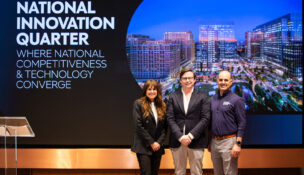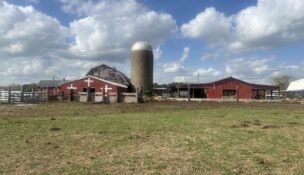‘Going-coming’ rule applicable in comp case
Employee injured in crash on way to job

Deposit Photos

Deposit Photos
‘Going-coming’ rule applicable in comp case
Employee injured in crash on way to job
In brief
- Court of Appeals affirms workers’ comp for injury during commute
- Employer arranged transport due to worker’s inability to drive
- Injury occurred in crash with drunk driver en route to job site
- Court applied exception to the “going and coming” rule
Injuries suffered by an employee on his way to work were compensable under the Workers’ Compensation Act as his employer provided the transportation that ferried him to and from jobsites, the Court of Appeals of Virginia has decided.
Claimant Simon Portillo Moncho was a passenger in a vehicle owned and operated by a co-worker. The men were en route to work when their truck was hit by another vehicle. The crash seriously injured Moncho and left him unable to work.
Initially, the Virginia Workers’ Compensation Commission’s deputy commissioner found that the ride to work did not reach the threshold of providing sufficient benefit to the employer to meet the “going and coming” exception. But on review the commission reversed.
In an unpublished per curiam opinion, the Court of Appeals affirmed the commission’s ruling, finding that Moncho’s “injuries arose out of and in the course of his employment under an exception to the ‘going and coming’ rule.”
The nine-page opinion is Hercules Remodeling LLC, et al. v. Moncho (VLW 025-7-161).
Court declines oral argument
Richard Reed of The Reed Law Firm in Manassas represented the claimant.

Reed said the court’s determination that his client’s injuries were work-related likely hinged on a conversation with the claimant when he was hired. Through that conversation, the employer learned that the claimant did not drive and did not have a ride to work, he said.
After a few phone calls, the employer resolved the issue, according to Reed.
The case is a reminder that employment agreements do not need to be in writing, he noted.
“[They] can be purely oral, and the determination of whether those arrangements were made can be based purely on testimony about conversations,” Reed said.
Vanessa Reed, also of The Reed Law Firm, was co-counsel for the claimant.

She said evidence and testimony showing that the employer provided transportation and reimbursed the person who drove the claimant to work with gas money likely helped influence the court’s decision.
“It was essential that they had to provide transportation in order for him to do the job and get to work every day,” she said.
Sarah M. Burton, of Columbia, Maryland, represented appellants Hercules Remodeling and Builders Mutual Insurance Co. Burton did not respond to a request for comment.
Major collision
On the morning of Jan. 27, 2022, the claimant was riding in a privately owned vehicle driven by a Hercules employee. The employee received gas money from the company but was not reimbursed for other vehicle-related expenses.
The pair was headed from the claimant’s residence to pick up a third employee, when their truck was T-boned on the driver’s side by a drunken driver who ran a red light.
The collision caused the truck to overturn onto the passenger side. The claimant was in the passenger’s seat with the window down and suffered serious injuries to his arm.
His lawyers say he has been unable to work since the accident.
Ride offered mutual benefit
The Court of Appeals said the issue in dispute was if the coming and going rule barred the employee’s claim.
Citing Bristow v. Cross, a case with similar facts, the panel noted that the general rule is that an employee traveling to or from their place of work who is not engaged in any service growing out of or incidental to employment means injuries in transit are barred under workers’ compensation.
But the panel noted that “Virginia has long recognized three exceptions to this general rule.”
The first exception is when the transportation is employer-provided, or the time consumed is paid for or included in the wages.
The second exception is when the ingress or egress is employer-constructed and the transportation used is the only access.
And the third exception exists if the employee en route to or from work is still charged with a task or duty connected to their employment.
The claimant argued that the first exception applied.
“The record shows that even before claimant joined Hercules, the company had a custom of providing at least some employees with transportation to the job site,” the panel found.
And while the claimant was not paid for the time in transit to work, “he clearly benefitted from the arrangement, as neither owning a car nor being able to drive, the Hercules-provided transportation was his only means of working,” the panel said.
The employer benefited as well “by having the assurance of claimant’s availability to work on site and on time,” the panel stated.
It further noted that “injuries sustained by a worker traveling to or from work via employer-provided transportation fall within the scope of the Act when such transportation is provided per ‘an express or implied agreement between the employer’ and the worker; ‘or where the transportation is furnished by custom to the extent that it is incidental to and part of the contract of employment; or when it is the result of a continued practice in the course of the employer’s business which’ benefits ‘both the employer and the employee.’”
The panel held that a claimant must establish only one of those elements to prevail.
Here, “the evidence shows that claimant’s transportation was ‘furnished by custom to the extent that it is incidental to and part of the contract of employment.’ Thus, the injuries he sustained in transit occurred in the course of and arose out of his employment and are compensable under the Act,” it said.
T


















